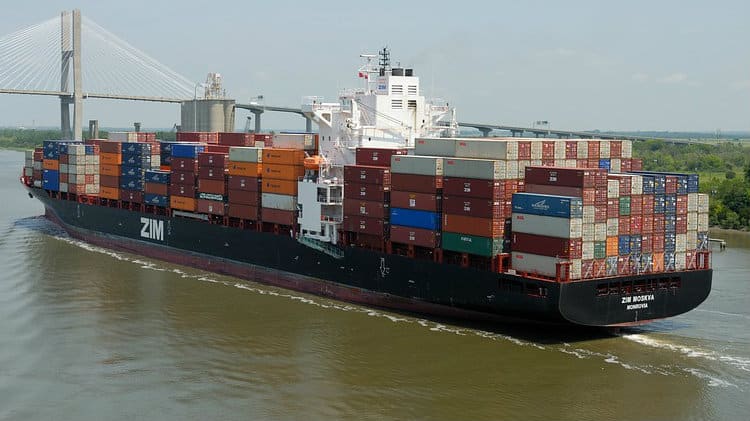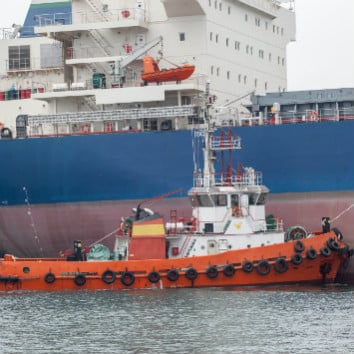Suffering a maritime or offshore injury in Georgia can raise many questions:
We can help you learn more about your options in a free consultation. Contact us now to speak with an experienced offshore injury and accident attorney.
Georgia’s deepwater ports have a serious economic impact throughout the state, accounting for over 369 thousand jobs and over 8 percent of Georgia’s total employment.
These jobs allow Georgia residents to live comfortably, but the industry has a number of occupational dangers. Maritime and offshore workers often suffer serious injuries on the job, which may require expensive medical treatment and long periods away from work.
When an offshore worker gets injured, it’s important that they receive financial compensation so they can continue to support their families and pay for their medical care and other related expenses. Under maritime law, these injured workers may be permitted to seek compensation in a Jones Act or Longshore and Harbor Workers’ Compensation claim.
To learn, contact our maritime accident attorneys today.


The state of Georgia has five seaports, including a couple that have a serious nationwide economic impact.
The Port of Savannah is the largest single container marine terminal in North America, and ranks as the second-busiest U.S. container exporter behind Los Angeles – with over 13 million tons being exported each year. In total, 29 million tons of cargo moved through the port in 2014.
The facilities contain two deepwater terminals: Ocean Terminal and Garden City Terminal. This port specializes in breakbulk, containers, heavy-lift and project cargoes.
The Port of Brunswick is one of the country’s busiest ports for automobile imports and exports, acting as the main export facility for Ford, General Motors, and Mercedes Benz. This port also imports large quantities of automobiles from international companies like Jaguar, Porsche, Volvo, Hyundai, Land Rover, Kia, and Mitsubishi.
The port also specializes in handling a wide range of breakbulk, agri-bulk, and roll-on/roll-off cargoes, including wood and forest products like linerboard, woodpulp, paper products, and plywood.
Located on the Apalachicola-Chattahoochee-Flint Waterway, the Port of Bainbridge handles several different bulk cargoes which are transported by barge, including nitrogen solution, gypsum, ammonium sulfate, urea, cottonseed, and cypress bark mulch.
If you’ve been injured while working offshore or at one of Georgia’s ports, there are two maritime laws that may allow you to seek financial compensation:
Seamen who spend at least 30% of their work time in the service of a vessel on navigable waters are covered by the Jones Act. This Act provides financial compensation for maintenance and care (living expenses and medical care), regardless of how your injury may have occurred. If your injury was at least partly caused by some form of negligence, you may also have the option to sue your employer for additional damages.
Maritime workers not covered under the Jones Act are instead covered by the Longshore and Harbor Workers’ Compensation Act (LHWCA). This is similar to a state-level workers’ compensation claim but at the federal level.
Benefits included under this Act include compensation for lost wages, medical expenses, vocational rehabilitative services, and death benefits for surviving families. Workers covered under the LHWCA may include longshoremen, dock and harbor workers, and others who work on the shore.
Many offshore and maritime workers are unsure what to expect after an injury. Some may not be aware that they’re entitled to financial compensation, while others may not know how to recover it. In many cases, these workers attempt to claim compensation on their own without realizing how complex the process is and how insurance companies specialize in finding ways to deny compensation. They may end up settling for far less than they’re entitled to, or receiving no financial compensation at all.
In order to protect your rights and ensure that you get every dollar you deserve, it’s usually best to be represented by a lawyer with experience in maritime law. An experienced and resourceful lawyer can help you provide all evidence you need, represent you in all court appearances, and help negotiate a settlement with the insurance company.
If you’d like to find out more about your options after an offshore injury in Georgia, contact us today for a free consultation.
Continue Reading: Options For Financial Compensation After A South Carolina Maritime Injury

 info@legalherald.com
info@legalherald.com